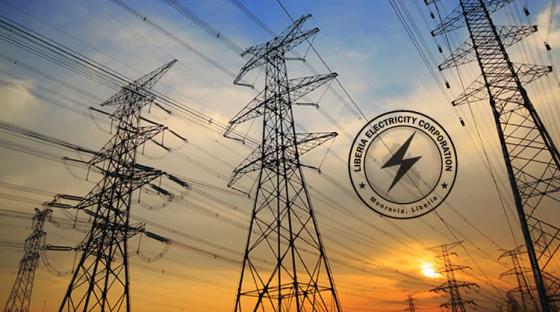Liberia: LEC Announces Massive Power Cuts

Liberia: LEC Announces Massive Power Cuts
“Every community supplied by LEC will be affected by this exercise,” LEC said in a statement.
The Liberia Electricity Corporation (LEC) has announced a series of planned power cuts as it is unable to meet domestic peak demand.
The shock announcement from the state power company comes a few days after one of its partners, TRANSCO CLSG, blamed ongoing work on the Bogota substation in Bong County for the unannounced power outage that rocked some parts of the country last month.
However, the problem appears bigger than what TRANSCO is claiming, as CI Energies, the company supplying Liberia with electricity through the Transco-CLSG transmission lines from Ivory Coast, says it can no longer supply Liberia with electricity beyond contracted capacity.
The situation, according to the state power company, was to institute load-shedding (power cut) operations to reduce available electricity imports.
“Every community supplied by LEC will be affected by this exercise. These outages are being implemented due to unforeseeable challenges with power generation in Côte d’Ivoire,” the LEC said in a statement.
“CI Energies, the electricity supplier through the Transco-CLSG transmission lines, can no longer supply Liberia with electricity beyond contracted capacity,” the statement added. “The impact of such an unfortunate development is that LEC may not be able to meet domestic peak demand, which is currently 74 MW, well above the current generation capacity of the corporation.”
The load-shedding (power cut) is expected to cause more frustration among the population as thousands of homes will be in the dark, and businesses of all sizes will run into extra power generation costs just to keep operating.
It is expected to run between six and twelve hours a day, and many will continue beyond its May 5 deadline if water inflow into the Mount Coffee dam does not improve “to enable the full operation of the dam.”
The latest power cut comes as Liberia remains one of the countries with one of the lowest electricity access rates in the world, with only about 12% of the population having access to electricity, constraining economic activities.
“LEC is hopeful that water inflow into the Mt. Coffee dam will improve over the coming days to enable the full operation of the dam,” the utility added. “Until then, LEC may be required to undertake selective load-shedding to match electricity demand to the available capacity.”
Power cuts by the LEC are, however, not strange, as scheduled blackouts have taken place across the country for a number of years now for as long as 10 hours per day at a time. It, however, increases during the dry season as the water level at the refurbished Mount Coffee Hydro Power Plant.
The Mount Coffee Hydro Power Plant is what the country depends on for nearly half of its energy needs. But since the dam came online in 2016, the demand for electricity has outpaced its supply capacity, leading to load-shedding becoming a regular occurrence.
Analysts say underinvestment in the maintenance of the dam for years has affected its ability to deliver a consistent power supply per its capacity.
This problem was supposed to be fixed by the arrival of the Transco transmission line from the Ivory Coast. But a year later, after the switching on of the Transco and the signing of the power supply agreement with CI Energies and Ivory Coast, the issue of regular power supply still remains a problem, with unannounced power cuts becoming more frequent.
Electricity theft, via illegal connections and non-payment by government agencies, has left the state power company in a precarious financial position as it owes Transco and CI Energies millions of dollars. This situation appears to be the reason that CI Energies says it “can no longer supply Liberia with electricity beyond contracted capacity.”
The debt also makes it difficult for LEC to upgrade some of its outdated infrastructure and invest in maintenance. The Transco project involves the construction of five 225 kV substations and approximately 530km of 225 kV power lines running across five counties in Liberia.
The connection was expected to increase the country’s state utility power generation capacity by 27 megawatts, which would amount to about 50% of what Mt. Coffee Hydro can generate.
“While some communities will be affected for six (6) hours, others will be affected for twelve (12) or more hours. However, no customer will be affected for more than eighteen continuous hours,” LEC says.
